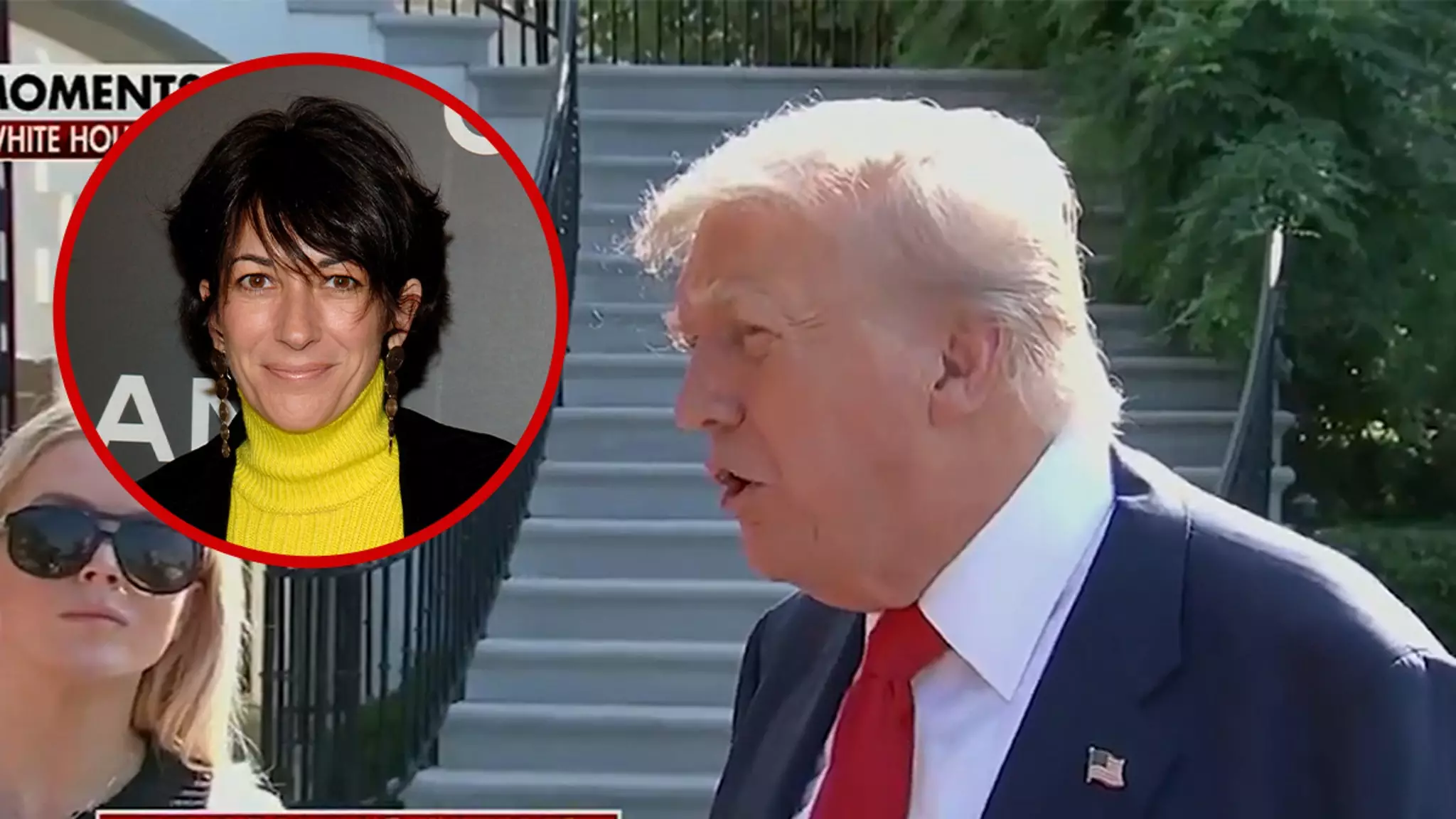The recent buzz surrounding former President Donald Trump’s comments on Ghislaine Maxwell’s potential pardon illustrates a troubling pattern in the American power schema. When public officials—including presidents—open the door to pardons for figures implicated in heinous crimes, it raises profound questions about accountability, justice, and the influence of political allegiance. Trump’s vague, non-committal response contrasts sharply with earlier statements from his administration that categorically denied any consideration of such a pardon. This flip-flop not only fosters confusion but signals an unsettling willingness among some political actors to entertain the possibility of shielding individuals connected to the Epstein scandal.
What’s especially disconcerting is the apparent ease with which the narrative around justice can be manipulated. The initial denials from the White House seemed aimed at protecting the integrity of legal processes, yet recent remarks suggest a more opaque approach, implying that even those convicted of serious charges might not be beyond redemption at the executive level. Power, in this context, becomes a tool that can potentially override established legal standards, edging us closer to a state where justice depends on political preference rather than the rule of law.
The Privileged Intersection of Politics and Justice
In a landscape already rife with controversy, the involvement of high-ranking officials like U.S. Deputy Attorney General Todd Blanche in interviewing Maxwell beneath the public eye underscores the peculiar and often secretive machinery of justice in high-profile cases. This deviation from routine legal procedures—where such interviews are typically reserved for line prosecutors—raises flags about undue influence, political leverage, and the safeguarding of powerful figures. If justice becomes a game of insider access and clandestine meetings, the public’s trust erodes further.
The Epstein case itself exposes a troubling nexus of influence, wealth, and political connections. Epstein’s death in jail, declared a suicide, has long been viewed skeptically by a large segment of the population, fueling conspiracy theories that suggest a cover-up of more sinister underpinnings. When high-profile figures, including politicians such as Pam Bondi, are entangled in the narrative, it hints at a web of complicity that surpasses mere criminal activity—pointing instead to an overarching system that may prioritize concealment over transparency.
The Power of Public Perception and Media Manipulation
The media’s role in shaping or dismantling these narratives cannot be overstated. Articles revealing possibly incriminating details about Trump’s past communications with Epstein and Maxwell intensify the suspicion among the public that the truth is being concealed behind layers of political figures and media spin. The recent revelation about a bawdy birthday message penned by Trump to Epstein, documented by The Wall Street Journal, exemplifies how seemingly trivial details can swiftly morph into symbols of deeper misconduct—especially when they are scrutinized in the context of broader allegations of sex trafficking and abuse.
Congress’s move to subpoena Maxwell signals a shift toward accountability, yet the absence of a concrete date for the hearing illustrates how slowly justice often moves in such politically sensitive scenarios. Meanwhile, the public’s fascination persists, fueled by a mixture of genuine concern, conspiracy theories, and media sensationalism. It’s a testament to how power and privilege distort the normal flow of justice, transforming what should be straightforward legal proceedings into complex chess games marred by leaks, political spin, and strategic obfuscation.
A Critical Reflection on Moral Responsibility
At its core, the Epstein and Maxwell saga underscores a critical failing of the political and judicial systems: the reluctance—or outright refusal—to confront uncomfortable truths when they threaten to dismantle powerful networks. When those at the top suggest possible pardons for those linked to notorious crimes, it looks less like justice and more like a strategic move to protect interests over principles.
This elaborate dance of denial, selective transparency, and potential pardon possibilities serves as a stark reminder that the moral compass of institutions is often compromised when personal loyalty and political survival take precedence over justice. As observers, it is our responsibility to critically analyze these developments, recognizing the patterns of influence that distort the pursuit of truth.
In the end, the Epstein-Maxwell case is not merely about individual crimes—it’s a mirror reflecting the broader corruption that can exist within the halls of power. Challenging this reality requires unwavering skepticism, relentless scrutiny, and a firm commitment to holding the powerful accountable—no matter how deep the shadows may be.

